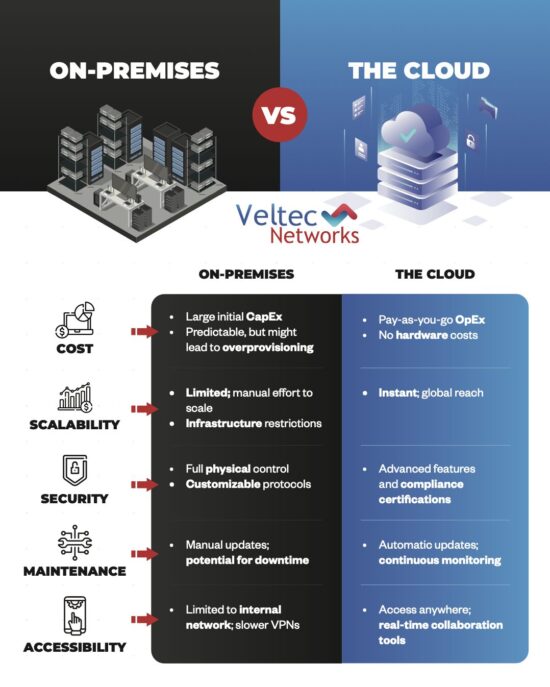Why You Should Encrypt Your Data and Devices
Every second, large volumes of information get transmitted over the internet, from personal messages to sensitive information such as health records and credit card numbers. In fact, a study conducted by Statista found that the global IP traffic was 278108 petabytes per month in 2021.
That said, data isn’t always safe as it moves across different networks, given that cybercriminals are always looking to steal it and either sell it on the dark web or use it to demand ransom from data breach victims. Fortunately, by encrypting your devices, the transmission of confidential data across networks is possible without compromise. When your devices are encrypted, an attacker or malware with access to your devices won’t be able to read the data stored in them unless they have a decryption key or password. In this post, we’ll cover what device encryption is and why it is important.

What Is Device Encryption?
Device encryption refers to the process of scrambling data into eligible code and making it indecipherable to anyone without a recovery key or a password. The data (plaintext) is encoded using an encryption algorithm to turn it into an unreadable format (ciphertext). This gibberish data can only be accessed by users with a decryption key or a password.
While there are numerous encryption techniques, the most predominant are symmetric and asymmetric encryption techniques. Here’s a look at what they are.
- Symmetric Encryption: This encryption technique uses the same key encryption and decryption process. Basically, the plaintext is encrypted using a given key, and that same key is used by the recipients to decrypt the ciphertext. Given that the algorithm behind symmetric encryption has fast execution, it is widely used in encryption algorithms such as AES-256 and AES-128 to transmit data in bulk.
- Asymmetric Encryption: This encryption technique is more secure given that it uses two keys (private key and public key). The private key remains undisclosed, whereas the public key is available to all. When data is encrypted using a public key, the recipient can only decrypt it with a private key. The major shortcoming of asymmetric encryption is that the encryption process is quite lengthy.
What Are the Benefits of Device Encryption?
Below are the key reasons why you need to ensure that your devices are encrypted:
1. It Protects Stolen/Lost Devices
Today, employees are increasingly using personal and mobile devices for work. While these devices are convenient for efficiently performing various tasks, they come with high cybersecurity risks. A laptop, tablet, or smartphone can easily get lost or misplaced. When these devices land in the wrong hands, the threat actors can read the data contained in the devices by scanning their hard drives.
Device encryption protects against the threat of lost or stolen mobile devices. The data stored in these devices is encrypted, and the encryption keys are protected using a password. Unless a threat actor has access to this password, they won’t be able to read the data stored in the stolen device.
2. It Can Help You Avoid Regulatory Fines
Depending on your industry, device encryption for data protection may be mandatory rather than optional. While regulations such as GDPR may not have specific requirements for data encryption, security measures must be put in place to protect the privacy of data.
Data protection regulations such as HIPAA require that confidential data be encrypted. As such, if a mobile device containing unencrypted data gets misplaced or is stolen, the organization responsible for the data may be subjected to fines.
In a 2018 incident, the University of Texas MD Anderson Cancer Center was subjected to a $4.3 million penalty for failing to abide by HIPAA data encryption regulations. This incident shows just how costly non-compliance with data encryption laws can be.
3. It Helps You Stay Safe When Working Remotely
More and more companies are adopting remote work. This isn’t surprising, considering how working remotely makes it easier for employees to stay productive from anywhere. Even so, remote work comes with higher risks of a data breach, given that threat actors are always looking to exploit any security loopholes on your network.
You should ensure that your data and devices are encrypted, and that remote workers are using a VPN (virtual private network) to prevent threat actors from intercepting unsecure public Wi-Fi connections and infecting your network with malware.
4. It Improves Data Integrity
While encryption alone doesn’t guarantee data integrity, it is key to you achieving this feat. When you trust your data, you will be more confident when using it to make business decisions. High-quality data can help you learn more about your clients and track emerging trends. Most businesses usually deploy techniques such as data cleansing to improve the quality of their data, and that’s a good starting point.
Data encryption can further improve the integrity of your data by ensuring that only authorized persons can access your data. It also reduces the likelihood of threat actors successfully tampering with your data.
5. It Can Increase Customer Trust
Even when you’re not required to encrypt data due to privacy regulations, some businesses choose to do so to show their customers that they take privacy seriously. Taking such a step is crucial, primarily due to the eroding trust people have when it comes to the internet.
That said, even though end-users need to also take the responsibility of safeguarding their data, businesses can solidify their reputations by using the latest technologies to encrypt their data.
6. It Could Provide a Competitive Advantage
Given that security applies to data when it’s both in transit and at rest, it offers protection that could give some peace of mind for the people handling your data. Also, when your clients are confident that their information is safe, they are more likely to stick with you and even refer customers to your business.
Veltec Networks Device Encryption Services Can Help You Bolster Your Security
Veltec Networks offers comprehensive device management and encryption services that can secure a business’s critical information. Our solutions will ensure that your employees can exchange emails safely and collaborate on projects securely. You can count on us to minimize the risk of lost or compromised data. Contact us today and let us safeguard your business information.






